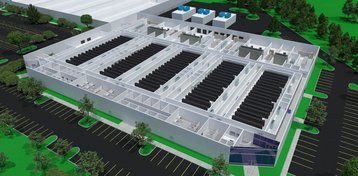American data center operator Sentinel is set to expand its existing campus in Durham, North Carolina by 120,000 square feet.
The second phase of the project will more than double the available space. It will be a modular build, offering autonomous suites of various sizes and configurations.
“The acceleration of demand we are seeing further validates NC-1’s value proposition of unparalleled quality matched with best-in-class occupancy economics,” said Todd Aaron, co-founder of Sentinel.
Room for growth
Sentinel was established in 2001 as one of the first data center operators with a focus on wholesale colocation. Over the years, the company has developed more than 1.6 million square feet and 120MW of power, including facilities for its own use and those built for specific customers.
Sentinel currently runs own data centers across three states: New Jersey, North Carolina and New York.
The NC-1 campus in Durham, which opened in 2013, measures 100,000 square feet – about half of it reserved for servers - and is quickly running out of capacity. The new building will add another 50,000 square feet of white space, and allow installation of up to 10MW worth of extra equipment.
Just like the initial Durham build-out, the latest facility will be constructed out of modular building blocks to enable variable power densities and multiple resiliency levels in the same location.
Sentinel expects NC-1 to total 420,000 square feet when the site is fully complete, including 200,000 square feet of white space.
“Sophisticated users are continuing to take notice of North Carolina’s material cost advantages over Northern Virginia and all other East Coast regions,” says Josh Rabina, Co-Founder of Sentinel Data Centers.
“With excellent regional resources and infrastructure, full sales tax exemption for all tenant IT purchases and all-in power rates below $0.042 per kWh, our NC-1 facility provides one of the best value propositions for large users in the country.”

